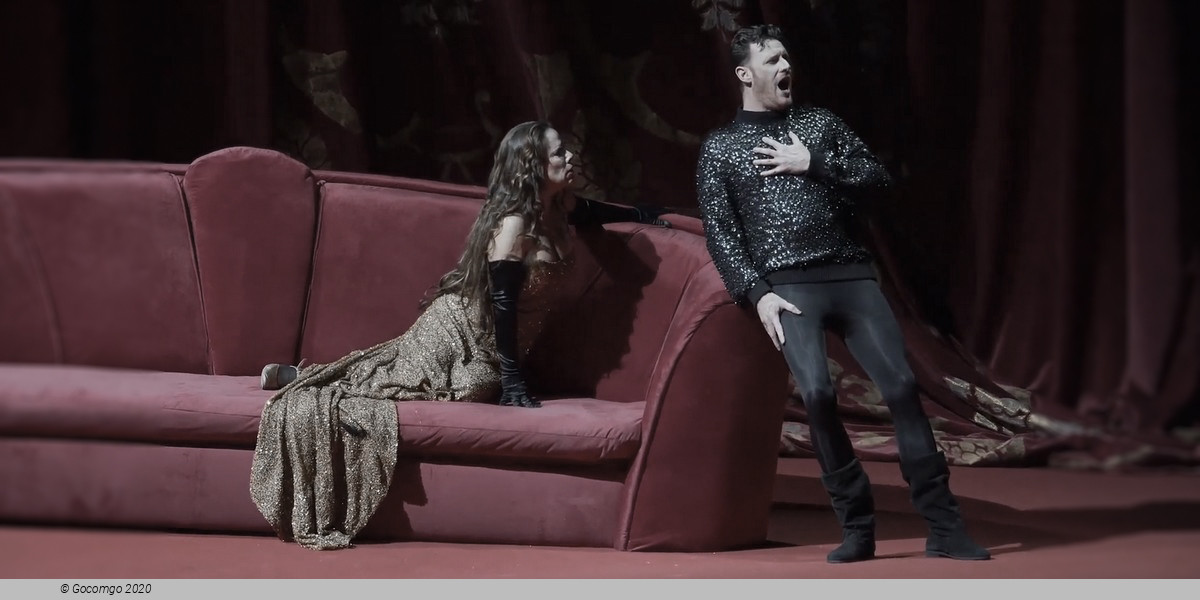Events12 results
About
Erich Wolfgang Korngold (May 29, 1897 – November 29, 1957) was an Austrian-born composer and conductor. A child prodigy, he became one of the most important and influential composers in the history of Hollywood. He was a noted pianist and composer of classical music, along with music for Hollywood films, and the first composer of international stature to write Hollywood scores.
When he was 11, his ballet Der Schneemann (The Snowman), became a sensation in Vienna, followed by his Piano Sonata which he wrote at age 13, played throughout Europe by Artur Schnabel. His one-act operas Violanta and Der Ring des Polykrates were premiered in Munich in 1916, conducted by Bruno Walter. At 23, his opera Die tote Stadt (The Dead City) premiered in Hamburg and Cologne. In 1921 he conducted the Hamburg Opera. During the 1920s he re-orchestrated, re-arranged and nearly re-composed, for the theater, operettas by Johann Strauss II. By 1931 he was a professor of music at Vienna State Academy.
At the request of director Max Reinhardt, and due to the rise of the Nazi regime, Korngold moved to the U.S. in 1934 to write music scores for films. His first was Reinhardt's A Midsummer Night's Dream (1935), which was well received by critics. He subsequently wrote scores for such films as Captain Blood (1935), which helped boost the career of its starring newcomer, Errol Flynn. His score for Anthony Adverse (1936) won an Oscar, and was followed two years later with another Oscar for The Adventures of Robin Hood (1938).
Overall, he wrote the score for 16 Hollywood films, receiving two more nominations. Along with Max Steiner and Alfred Newman, he is one of the founders of film music. Although his late classical Romantic compositions were no longer as popular when he died in 1957, his music underwent a resurgence of interest in the 1970s beginning with the release of the RCA Red Seal album The Sea Hawk: the Classic Film Scores of Erich Wolfgang Korngold (1972). This album was hugely popular and ignited interest in other film music of his (and other composers like Steiner) and in his concert music, which often incorporated popular themes from his film scores (a good example being the Violin Concerto in D, Op. 35).
Early years as prodigy
Erich Wolfgang Korngold was born to a Jewish family in Brünn, Austria-Hungary (present-day Brno, Czech Republic). Erich was the second son of eminent music critic (Leopold) Julius Korngold; Erich's older brother Hans Robert Korngold [de] (1892–1965) was also a musician. A child prodigy living in Vienna, Erich could play four-hand piano arrangements alongside his father at age five. He was also able to reproduce any melody he heard on the piano, along with playing complete and elaborate chords. By age seven, he was writing original music.
Korngold played his cantata Gold for Gustav Mahler in 1909; Mahler called him a "musical genius" and recommended he study with composer Alexander von Zemlinsky. Richard Strauss also spoke highly of the youth, and along with Mahler told Korngold's father there was no benefit in having his son enroll in a music conservatory since his abilities were already years ahead of what he could learn there.
At age 11, he composed his ballet Der Schneemann (The Snowman), which became a sensation when performed at the Vienna Court Opera in 1910, including a command performance for Emperor Franz Josef. He continued composing with great success throughout his teens. At age 22, he composed a piano trio. His Piano Sonata No. 2 in E major, which followed, was played throughout Europe by Artur Schnabel . During these early years he also made live-recording player piano music rolls for the Hupfeld DEA and Phonola system and also the Aeolian Duo-Art system, which survive today and can be heard.
Korngold wrote his first orchestral score, the Schauspiel-Ouvertüre, when he was 14. His Sinfonietta appeared the following year, and his first two operas, Der Ring des Polykrates and Violanta, in 1914. In 1916, he wrote songs, chamber works, and incidental music, including to Much Ado About Nothing, which ran for some 80 performances in Vienna.
Composing career in Europe
Korngold was active in the theatre throughout Europe while in his 20s. After the success of his opera, Die tote Stadt, which he conducted in many opera houses, he developed a passion for the music of Johann Strauss II and managed to exhume a number of lost scores. He orchestrated and staged them using new concepts.Both A Night in Venice and Cagliostro in Vienna are Korngold re-creations; these were the works that first drew the attention of Max Reinhardt to Korngold.
By this point Korngold had reached the zenith of his fame as a composer of opera and concert music. Composers such as Richard Strauss and Giacomo Puccini heaped praise upon him, and many famous conductors, soloists and singers added his works to their repertoires. He began collaborating with Reinhardt on many productions, including a collection of little-known Strauss pieces that they arranged, Waltzes From Vienna. It was retitled The Great Waltz and became the basis for a 1934 British film directed by Alfred Hitchcock and a film by the same name in the US, starring Luise Rainer. Korngold conducted staged versions in Los Angeles in 1949 and 1953.
He completed a Concerto for Piano Left Hand for pianist Paul Wittgenstein in 1923 and his fourth opera, Das Wunder der Heliane four years later. He started arranging and conducting operettas by Johann Strauss II and others while teaching opera and composition at the Vienna Staatsakademie. Korngold was awarded the title professor honoris causa by the president of Austria.



